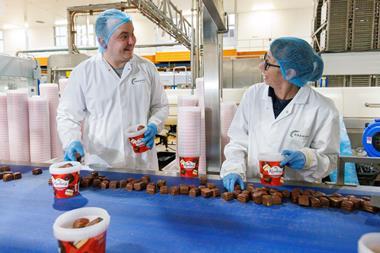A drop in the foodservice market could be a sign of a new recession, analysts have warned.
The total number of visits in the eat-out or out-of-home (OOH) foodservice market was down 1% year-on-year in the first quarter of 2018, according to The NPD Group.
Lunchtimes visits fell 5.1% year-on-year – the third quarter of decline – while breakfast visits fell for a second consecutive time, by 1.6%. Dinner visits have been in long-term decline.
The NPD Group reported that this pattern of falling foodservice visits was last seen at the start of the UK’s 2007/2008 recession.
At that time, consumers quickly changed their behaviour, bringing a sharp drop in foodservice visits. Despite the recession encouraging the industry to reshape its offer in terms of quality, choice and overall customer experience, the foodservice market has not fully recovered from the 2007/2008 recession, added NPD.
“Although it is too soon to say whether we are currently in recession or not, there are clear warning signs,” said NPD foodservice head Cyril Lavenant, adding that a sustained downturn would be more difficult to overcome this time because of threats on top of existing operating and cost challenges.
“The casual dining sector, for example, is facing pressure from quick-service brands that are offering new food choices and newly refurbished modern outlets,” he said.
“Consumers also have a bigger choice than ever of operators offering healthier and lighter eating. It is likely any new recession in foodservice will be harder to fight because the landscape is already intensely competitive.”
Eat-out visits began to slow after the Brexit vote in summer 2016, and the loss of visits has accelerated since last year, according to The NPD Group.
“Now is the right time to sound a warning,” added Lavenant. “The foodservice industry has so far demonstrated remarkable resilience in the face of tougher operating conditions, cost pressures and the uncertainty caused by Brexit. But, since the end of last year, we have seen some evidence of decline and operators will need to monitor carefully whether this downward trend continues. If it does, they will have to act fast to protect their business.”
































No comments yet